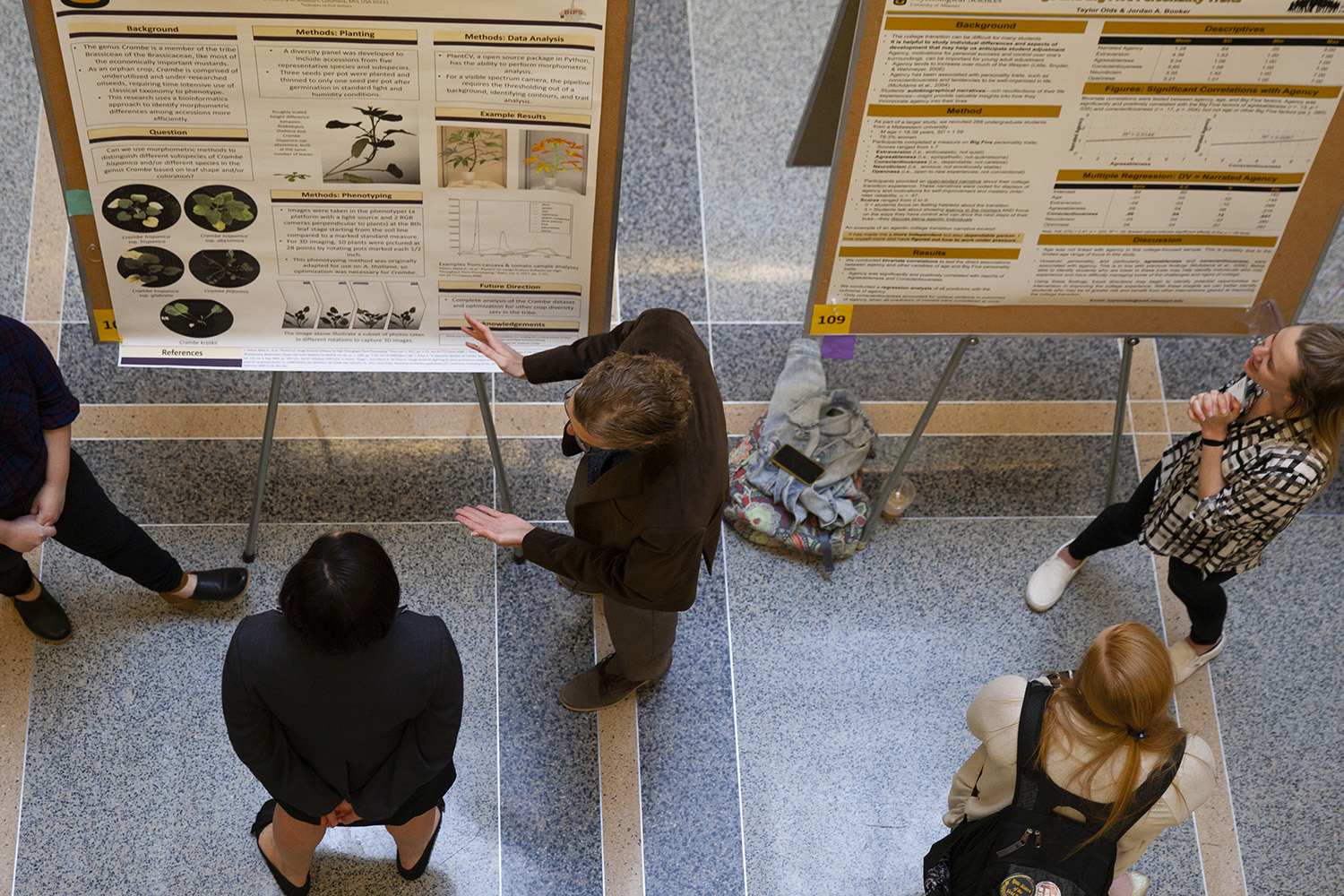
Due to the pandemic, the 2020 Undergraduate Research and Creative Achievements Forum will move from the MU Bond Life Sciences Center to an online format. Photo by Nic Benner
The Spring Undergraduate Research and Creative Achievements Forum is an annual opportunity for students to showcase their work, practice their communication skills, peruse the work of their contemporaries and hobnob with administrators and faculty in the friendly confines of the Bond Life Sciences Center.
For the 2020 installment, nothing has changed — except for that last part: the location.
In response to the pandemic, and thanks to a partnership between the Office of Undergraduate Research and MU Libraries, the forum has gone digital. More than 180 undergraduates have submitted abstracts of their scholarly projects. One hundred students have submitted posters and 30-plus undergraduates have provided videos or narrated PowerPoint presentations.
Read below to hear first-hand accounts from Tigers making the most of this unique opportunity. And please visit the site to view the student work and leave questions, comments, kudos and constructive criticism from Friday, May 1, through Tuesday, May 5.
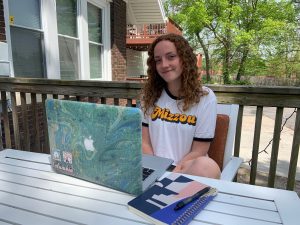
Kathryn Donnelly is a senior psychology major from St. Louis.
Describe your project in lay terms.
The purpose of my project was to extend existing research on parent-child conflict and its impact on adolescent development. More specifically, we wanted to look at how this association might differ between siblings due to the influence of adolescent characteristics like birth order and gender.
How much of your project were you able to get done before you left campus? How much were you able to do from home?
Luckily, the bulk of my project was done before campus closed! My data had been collected and analyzed, so I was able to continue writing from home.
How have you kept in touch with your mentor and other research team members? Any “silver linings” to being at home and being forced to communicate with your mentor/research team in a different way?
Working from home hasn’t really impacted my ability to keep in touch with my mentor or research team. We’ve always had an open line of communication, and we’re used to sending drafts and edits via email. Honestly, the decrease in time commitments and distractions because of quarantine has allowed me to focus more of my time on writing, which was previously difficult with my busy lifestyle — so there’s a silver lining!
What’s next?
I’ll be starting my master’s of social work at Washington University in St. Louis in the fall! I’m so excited to continue learning (hopefully on campus) about family relationships and mental health at the graduate level.
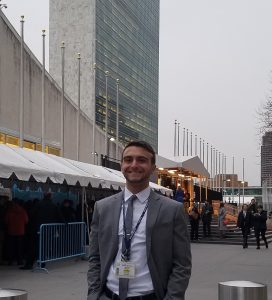
Jacob Hager is a junior economics and math major from Harviell, Missouri.
Describe your project in lay terms.
My project attempts to identify any correlational relationship between state-by-state economic performance and Social Security Disability Insurance rates of recipient enrollment/dis-enrollment. This analysis was done using yearly state unemployment rates and Social Security enrollment data to create a statistical model that would allow us to observe if any relationship existed.
How much of your project were you able to get done before you left campus? How much were you able to do from home?
I was able to complete almost all of my project before leaving campus, though the creation of my research poster was done entirely after we transitioned to online only. My work patterns have not been heavily interrupted by the transition, as most of the data analysis that we did for the project was from my own computer.
How have you kept in touch with your mentor and other research team members? Any “silver linings” to being at home and being forced to communicate with your mentor/research team in a different way?
The only thing that has really changed has been the obvious move from in-person meetings with my research mentor to Zoom. While I am content with the Research Forum going to an online-only format, I am a little disappointed that I was not able to print my poster out and talk about it in-person. Once we can all go back to normal, I hope to finally print it out so I can have a memento from this wonderful experience.
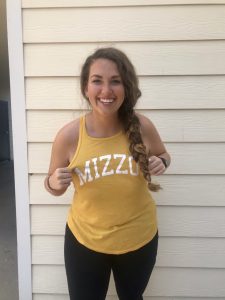
Sarah Hanske is a senior psychology major from St. Louis.
Describe your project in lay terms.
My research project focused on understanding how siblings confide in each other based on whether their parents are together or not. Gender and the topic of discussion between siblings were taken into account.
How much of your project were you able to get done before you left campus? How much were you able to do from home?
Thanks to my mentor, Dr. Nicole Campione-Barr, I was able to have all of my research complete before I left campus. I am super grateful for her efficient planning — it paid off! There was only the poster for the forum to complete while home, which was easy enough using PowerPoint to produce a digital version.
How have you kept in touch with your mentor and other research team members? Any “silver linings” to being at home and being forced to communicate with your mentor/research team in a different way?
I have been able to have Zoom calls with my mentor to talk about life, laugh about our situation and talk research. Quite honestly, it has been a delight to get to know my mentor on a different level. I see her dedication to caring for learners like me and continuously pursuing new developments in the field of psychology. She is truly inspiring! Even through such a difficult time, I’m amazed and encouraged by the way people are all stepping up in their own ways.
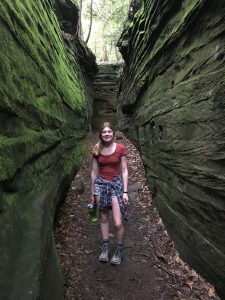
Mollie Harrison is a junior, chemical engineering major from Kirkwood, Missouri.
Describe your project in lay terms.
For my research project, I am exploring the use of hydrogen peroxide to encourage the regeneration of blood vessels. I am currently working towards the creation of a hydrogen peroxide releasing biomaterial. We hope to use this technology to regenerate complex bone tissue (which contains blood vessels and nerves) for patients with nonunion bone fractures.
How much of your project were you able to get done before you left campus? How much were you able to do from home?
My work on campus over the past two years has been exciting and successful. We have results that suggest low levels of hydrogen peroxide can indeed aid in the regeneration of blood vessels. I was only a few steps away from having enough results to publish before campus was shut down. Unfortunately, I cannot do much work from home other than reading papers, due to the experimental nature of my work. I have, however, been able to start writing my white paper.
How have you kept in touch with your mentor and other research team members? Any “silver linings” to being at home and being forced to communicate with your mentor/research team in a different way?
At home, I have mostly been reading papers and planning experiments that I will perform when the labs reopen. I have started writing a white paper, something my mentor has been encouraging me to do for some time but that my classwork, extracurriculars and experimental research had pushed aside until now. Although the paper will not be able to be completed until I can finish some work in the lab, it will be good to have a good chunk of it already written when the time comes. I have mostly been communicating with my mentor over email, and texting my research team members to stay in touch.
How did making a video or PowerPoint differ from a poster presentation?
Making a video for the virtual forum was very different than presenting live because it is much more important to explain your project clearly. During a normal poster presentation, your audience can ask questions about concepts you might have skipped over or points they need clarification on, but when it is virtual, these issues must all be addressed (as best you can) in the initial video. I think making the video has improved my ‘poster spiel’ by forcing me to think about which aspects of my poster will be the most confusing for the audience. Next time I present live, I think I will do a better job of addressing more the more complex concepts in my research.
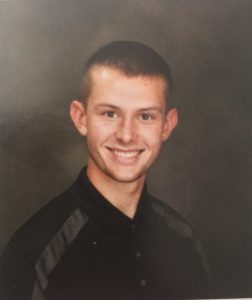
Brandon Lee is a junior chemical engineering and physics major from Kearney, Missouri.
Describe your project in lay terms.
I simulate the atomic-scale behavior of materials relevant to nuclear fusion reactors, then analyze the outputs of the simulations for meaningful/prominent trends. The overarching purpose of my work is to help build our understanding of these materials so that their performance in fusion reactors can be predicted (and hopefully improved).
How much of your project were you able to get done before you left campus? How much were you able to do from home?
The bulk of the project I presented was complete by the end of the Fall 2019 semester. I have had to do some writing on this project from home, but little else.
How have you kept in touch with your mentor and other research team members? Any “silver linings” to being at home and being forced to communicate with your mentor/research team in a different way?
Since my research is computational, I can perform essentially all my normal tasks from home. The only hinderance has been the transfer of large files from the research computers to my home computer, but that is a relatively minor issue. I keep in touch with my mentor and labmates via Zoom, texting, email, etc.
How did making a video or PowerPoint differ from a poster presentation?
I enjoyed making a voice-over PowerPoint. The ability to record each slide separately saved me a lot of time. The biggest difference between this and a normal presentation is the lack of a direct audience — I cannot focus on what people are interested in, converse in real time, etc.

Kelsey Mason is a senior biology and psychology major from Kansas City, Missouri.
Describe your project in lay terms.
My project investigates the effect of a drug, PD144418 (a sigma-1 receptor antagonist), on motivation to obtain a reinforcer, or sucrose pellet, in rats.
How much of your project were you able to get done before you left campus? How much were you able to do from home?
I was fortunately able to complete my project before campus closed. This made it really easy to make the poster and video from home!
How have you kept in touch with your mentor and other research team members? Any “silver linings” to being at home and being forced to communicate with your mentor/research team in a different way?
I’ve been able to run some data analyses and create my thesis project from home since the data had already been collected. My mentor and lab members have been having meetings via Zoom. It’s been cool getting to see everyone’s pets and showing my pets off. My cat loves the attention!
How did making a video or PowerPoint differ from a poster presentation?
Making the video and voice over was really easy since this is a skill I developed in a previous class. It is much different from doing a poster presentation because you don’t have any stage fright, nerves, or public speaking that is keeping you from doing well on your presentation. I was able to read from a script instead of memorizing my speech like I did last year, and this made it much easier to get my points across!
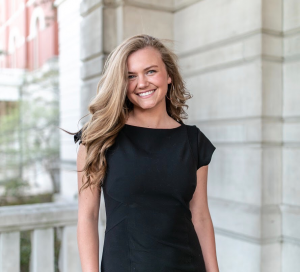
Madison Schroder is a senior political science and religious studies major from St. Louis.
Describe your project in lay terms.
My project researches voter turnout for Native Americans living on federally-designated reservations.
How much of your project were you able to get done before you left campus? How much were you able to do from home?
My project has been about a year-long process. However, the data analytics had to be done with my advisor over Zoom. The writing portion of my project was done about half and half on-campus and at home.
What have you been able to do from home? How have you kept in touch with your mentor and other research team members? Any “silver linings” to being at home and being forced to communicate with your mentor/research team in a different way?
I was able to do a great deal of my research at home since I did not need a lab setting or any on-site resources. My advisor, Dr. Endersby, and I met via Zoom every week, sometimes twice a week. I think the communication was kept up pretty well.